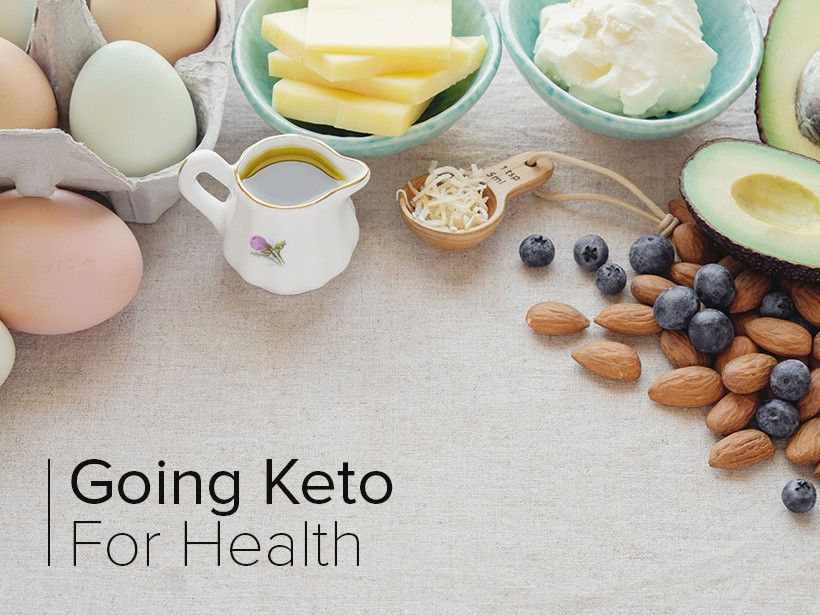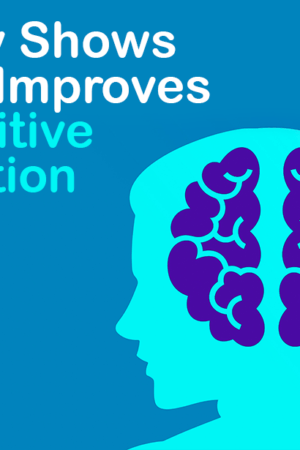Going Keto for Health
The most common goal that people in Western societies have when changing their diet is weight loss. The motive for this is often more related to cosmetic reasons (“I really need to lose ten pounds before that wedding in June!”) than for health reasons. However, a growing body of evidence suggests that the keto diet may be exactly what you need to live a healthier lifestyle.
The ketogenic diet actually began as a medical treatment for epilepsy, and this treatment continues to this day. Not only does it continue, it is increasing in popularity as a more natural and effective way to treat many patients with this condition. It’s important to understand the long history of keto as a medical treatment; this isn’t a fad diet or a quick weight loss magic trick. The primary reason you should consider going keto is because of the benefits to your health.
Weight Loss
Weight loss is an important benefit, so we’ll start there. Typical fad diets force you to starve yourself and gamble on being able to exercise significant levels of self-control just to get to your goal weight; these diets treat weight loss like it’s a sprint. Just lose ten pounds to get to that wedding, then afterward go back to your old eating habits… and the weight always seems to come back, and sometimes it brings friends with it. One of the major benefits of the keto diet is that it changes your lifestyle and ways of eating, which places it among the best options1 for helping you lose unwanted weight and keeping it off.
The keto diet does the opposite of crash diets: it gives your body all the nutrition and calories it needs, but it changes the way your body approaches nutrition to stimulate weight loss. When you make sure that you have all the nutrition your body requires, the amounts of ghrelin2 in your system decreases. Ghrelin is one of the body’s “hunger hormones” and increased levels of this hormone can contribute to those uncontrollable hunger cravings you may have experienced throughout the day. Levels of ghrelin increase when you’re constantly under-eating, which is why many “crash diets” fail: the less you eat, the hungrier you are, and when you finally give yourself permission to feed your body, you want to gorge yourself – often with high carbohydrate foods.
One of the greatest benefits of long-term weight loss is a higher sex drive and more sexual satisfaction. Weight loss can even increase testosterone levels in men. Studies3 have shown that a 5-point increase in body mass index (~30 pounds) resulted in testosterone levels usually seen in men a decade older.
It Protects Against Heart Disease
Heart disease is the leading cause of death for both men and women in America4. The keto diet works to decrease the risk of heart disease by lowering levels of triglycerides, bad LDL cholesterol, and blood sugar in your body, all of which are known contributors to heart disease. Triglycerides are a type of fat in the blood; this may seem counterintuitive since the keto diet centers around consuming high levels of fat. However, not all fats are created equal: triglycerides, for example, are created when more calories are consumed than necessary (often from carbohydrates) on a regular basis, and the body converts these into fats that are being stored, not high levels of fat being consumed. Fat (or lipids) in the blood are simply a fact of life; whether they’re being stored (e.g., triglycerides) or being consumed (e.g., ketone bodies) is the difference in whether they’re contributing to or fighting off heart disease.
Cholesterol gets a bad rap today, but that is mainly due to the prevalence of small LDL cholesterol, normally referred to as “bad cholesterol” (low-density lipoprotein, or LDL). “Good cholesterol” (high-density lipoprotein, or HDL) is not only beneficial to your body, it’s necessary. It helps your body build new cells, insulate nerves, and produce hormones. The liver is responsible for cholesterol production within your body, but you also get a significant amount of cholesterol from the foods you consume. Carefully choosing which foods you eat gives you control over whether your body has an abundance of LDL or HDL.
Small LDL is bad because it builds up in the walls of your arteries, narrowing them and restricting blood flow. HDL helps clear the arteries of cholesterol, increasing blood flow and oxygenation throughout the body. Going keto simultaneously decreases small LDL while increasing beneficial HDL and medium to large LDL. This study in Kuwait5 found that following the ketogenic diet for 24 weeks resulted in a host of beneficial results which combined to lessen the subjects’ risk of heart disease.
It Increases Your Chances of Living Longer
Higher carbohydrate intake is associated with a higher risk of mortality, while a diet high in healthy fats actually decreases your risk6. One of the reasons for this is that carbohydrates turn into glucose, which raises your blood sugar level; the body compensates by pumping out insulin to bring your blood sugar down to healthy levels. Over time, this constant cycling of insulin can actually cause a condition known as insulin resistance, where the body is so used to high levels of insulin it begins to ignore its presence.
Insulin resistance can lead to systemically high blood sugar levels and even diabetes. Diabetes is then controlled by (you guessed it) diet and higher levels of injected insulin; since your body has already been damaged by the overabundance of blood sugar, it doesn’t respond to treatment nearly as well as a healthy body would, leading to a host of diabetic complications.
The good news is that many of these conditions are reversible. Multiple7,8 studies have shown that a diet similar to the keto diet can be effective in lowering insulin resistance and increasing insulin sensitivity in both pre-diabetic and diabetic patients. Of course, the earlier you start this, the better. Since one of the primary methods of fighting diet-caused illnesses is changing to a better diet, why not just start now?
It Can Help You Fight Cancer
Switching to the keto diet reduces your risk of cancer in several ways. One of the most obvious is by decreasing the amount of sugar circulating in your system. Cancer cells feed on glucose and this can lead to uncontrolled growth9. Eliminating empty carbohydrates that lack nutrients can help starve off cancer cells and slow their growth rate, while simultaneously feeding the healthy cells a steady diet of high-nutrient foods.
Not only does a low-carbohydrate diet help slow the spread of cancer, it can actually help fight it. One study10 noted that the ketogenic diet could help selectively sensitize cancer cells to radiation and chemotherapy, thereby increasing the effectiveness of traditional cancer treatments.
If your primary goal is to lose weight in a slow, steady, and maintainable fashion that is conducive to keeping unwanted weight off long-term, the keto diet is for you. It avoids all the disadvantages of crash diets while changing your lifestyle to benefit your long-term health. If weight loss is secondary to healthy living, including decreasing your chances of cancer, heart disease, and diabetes, the keto diet may also be a solution for you.
NUTRITIONAL DISCLAIMER
The content on this website should not be taken as medical advice and you should ALWAYS consult with your doctor before starting any diet or exercise program. We provide nutritional data for our recipes as a courtesy to our readers. We use Total Keto Diet app software to calculate the nutrition and we remove fiber and sugar alcohols, like erythritol, from the total carbohydrate count to get to the net carb count, as they do not affect your blood glucose levels. You should independently calculate nutritional information on your own and not rely on our data. The website or content herein is not intended to cure, prevent, diagnose or treat any disease. This website shall not be liable for adverse reactions or any other outcome resulting from the use of recipes or recommendations on the Website or actions you take as a result. Any action you take is strictly at your own risk.
- The Brain’s Role in Weight Loss - March 11, 2019
- Making Fat Loss EPOC - March 8, 2019
- Overcoming Plateaus - March 6, 2019




